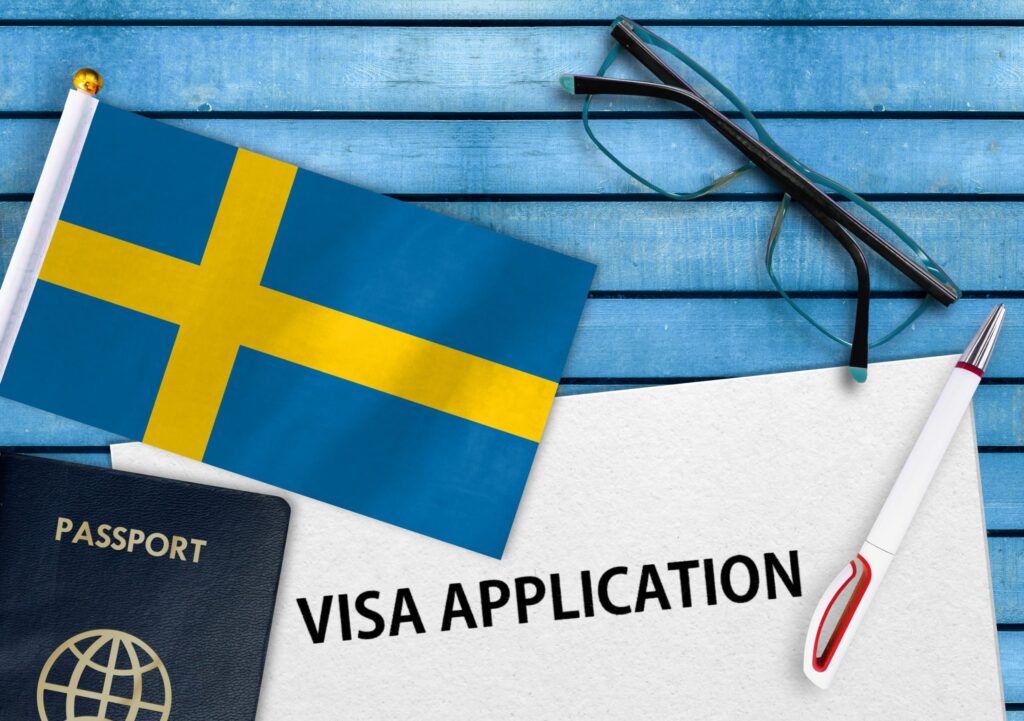Sweden is a popular destination for tourists, students, and professionals from all over the world. However, obtaining a permit to Sweden is not always easy. There are several reasons why an application may be denied, which can be frustrating and disappointing for the applicant. In this article, we will discuss the main reasons why applications may be denied, as well as some common mistakes that applicants make, and how to avoid them.

Reasons for visa denial
The following are the major reasons for visa denial in Sweden.
Insufficient funds
Insufficient cash is one of the most frequent causes of authorization denial. The Swedish authorities demand that applicants have enough money to pay for their whole stay in Sweden, including lodging, food, and transportation. A permit application may be denied if the applicant cannot show proof of adequate finances.
Lack of travel insurance
The absence of travel insurance is another typical justification for rejecting a visa. Applicants must have travel coverage that protects them for the entirety of their stay in Sweden, according to the Swedish authorities. A request for a permit could not be approved if the applicant cannot present proof of travel insurance.
Incomplete or incorrect application
A visa application must be correctly and completely filled out. Any incomplete or inaccurate information might lead to the application being rejected. It’s critical to thoroughly follow the directions and supply the necessary documentation.
Criminal record
Having a criminal history may make it extremely difficult to get a permit. Candidates having a criminal history could be considered a risk to the public’s safety, and their application might be turned down.
Lack of ties to home country
The Swedish ministry demands that candidates have close links to their country of origin. This implies that candidates must be tied to their home nation by a job, a family, or other obligations that increase the likelihood that they will return after their time in the country. Requests may be turned down if the applicant cannot show that they have close links to their nation of origin.
Inadequate travel itinerary
The Swedish authorities demand that applicants submit a thorough travel itinerary that includes the itinerary’s objective, the locations they want to visit, and their lodging choices. An applicant’s request for papers can be turned down if they are unable to submit a thorough trip itinerary.
Lack of language skills
Swedish and English are both official languages in Sweden, which is a multilingual nation. While speaking Swedish is not a requirement, candidates should be able to converse in English. An applicant’s application can be rejected if they are unable to communicate in English.
Overstaying a previous visa
At last, a permit demand may be rejected if the applicant has a history of overstaying a previous visa. This is due to the fact that exceeding the validity of a permit is against immigration law and may result in a ban from entering the country.
Re-applying for visa
If you were first denied a visa to Sweden and are reapplying, it’s crucial to carefully consider the original denial’s grounds. As a result, the applicant will have the opportunity to address any concerns and present more evidence to support their position.
The procedure for reapplying for a travel pass in Sweden is the same as the procedure for the original request. The candidate must finish and submit all necessary paperwork, including any necessary supporting materials, and pay any costs that might be due. It is crucial to remember that the applicant must explain why they think their current application should be accepted and reveal any prior rejections.
Depending on the kind of pass and the current workload of the immigration office, the processing time after the application has been submitted might change. It is advised to often check the request’s progress and, if required, follow up with the immigration office.
You may also like these articles:
